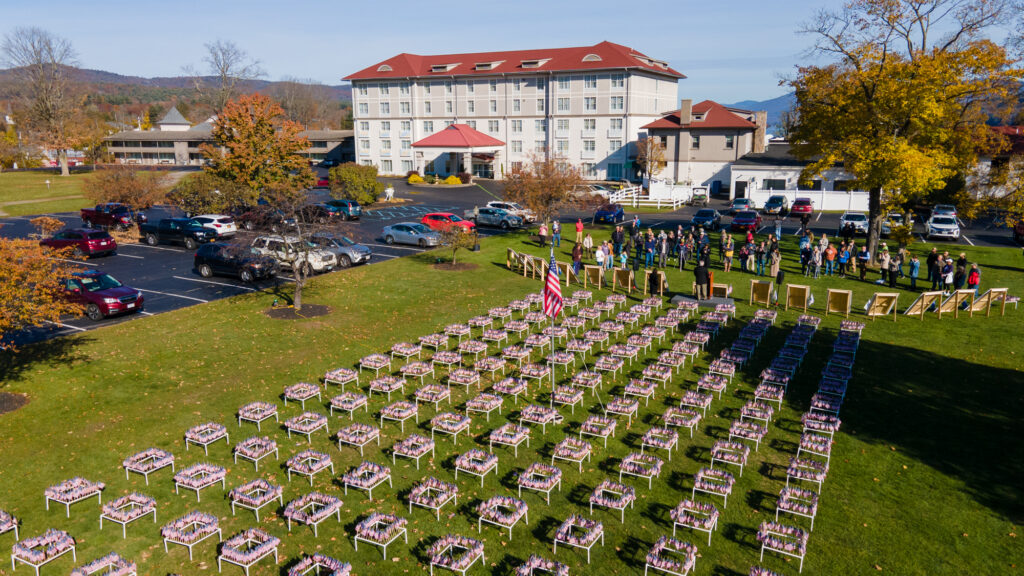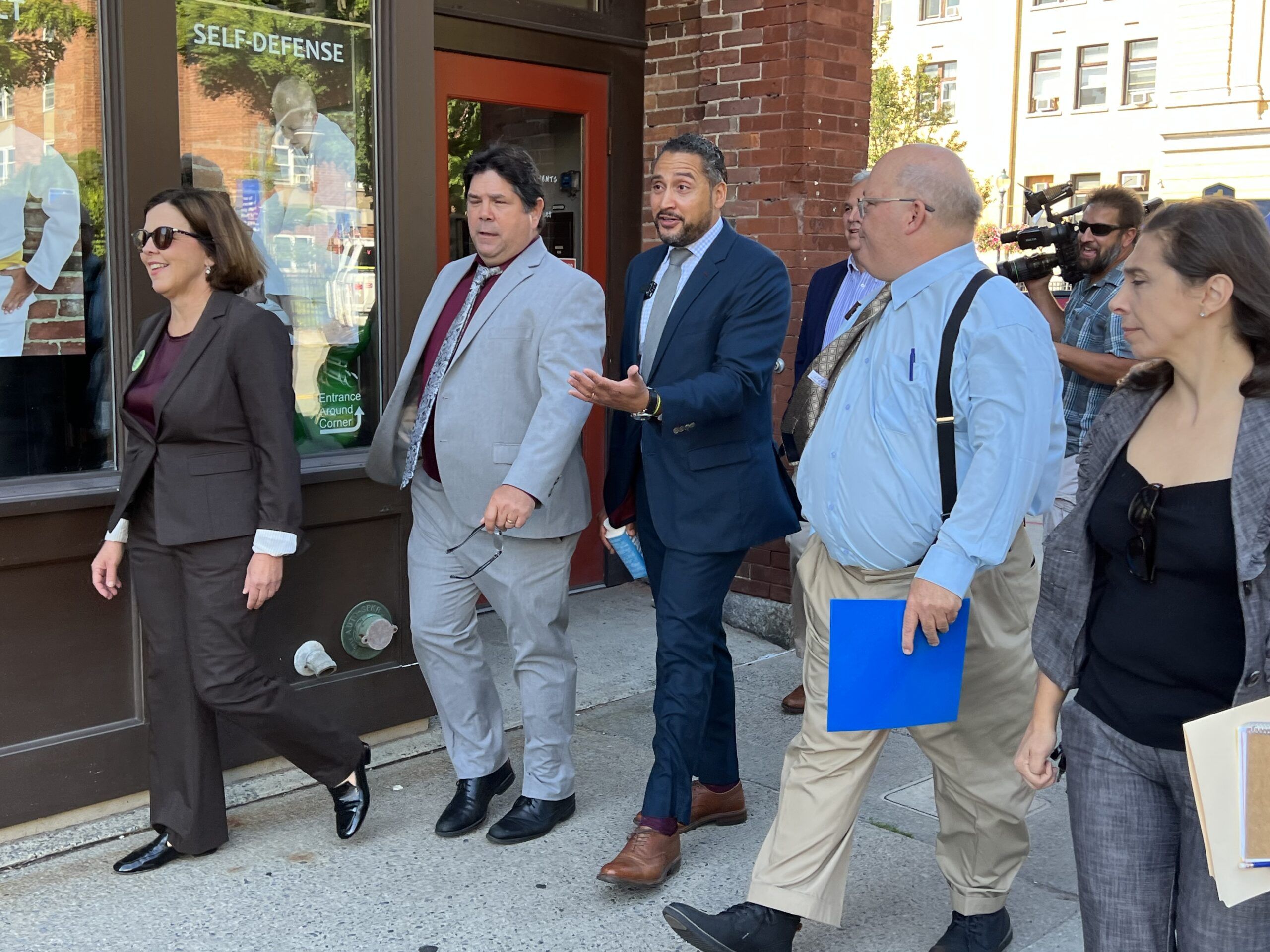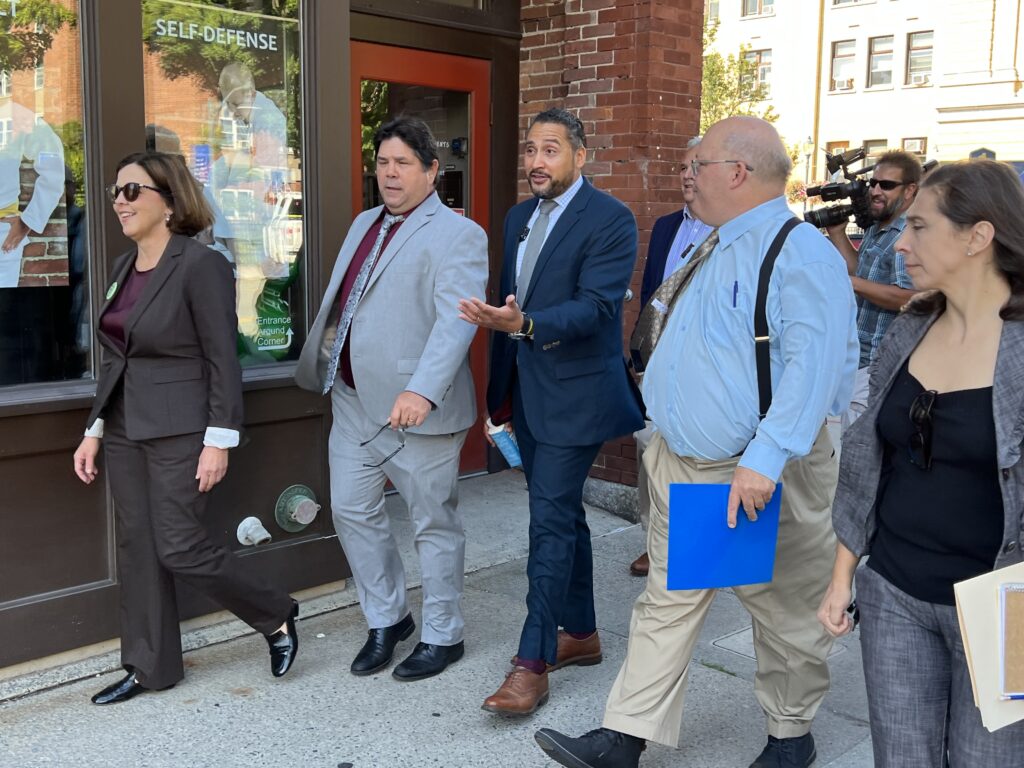‘I feel it’s needed’: Faces of Veterans helping veterans share their stories

QUEENSBURY — Every veteran has a story, and Stephen Willette is determined to share as many of those stories as he can.
Willette is the founder and CEO of Patriot Images, a photography company that began the ‘Faces of Veterans’ series in 2019. The project displays photographs of veterans, providing a glimpse into the lives of those who have served.
“There’s so many stories that are left untold,” said Willette. “They’re stories of inspiration, they’re stories of patriotism. … I think that America, or the general populace, needs to hear those.”
Willette first began photographing veterans in 2018 for the Saratoga County Veterans Peer to Peer Mentoring Program. He said this opportunity led him to begin the Faces of Veterans project.
“When I was done with that, I said, ‘Well, I think I’m just going to continue this across all of New York State,” said Willette.
Willette, a Schuylerville native, served in the Air Force for 16 years, from April 2001 to January 2017. He said the Faces of Veterans allows the opportunity for veterans to connect and share their stories.
He said it is important to share photographs and stories of veterans of wars such as World War II.
“The Vietnam-era veterans, they’re getting older as well. There’s a number of them that I have photographed that are no longer alive,” said Willette. “I’ve interviewed and I’ve photographed World War II veterans, and they’ve shared their stories with me, and I’ve been able to take the pictures and the stories that they’ve shared with me, and I’ve been able, in turn, after they died, to give it to their families.”
And the photos have also helped veterans open up and share their own stories with family, as Willette recounted a 2019 visit he made to the American Legion in Granville.
“It was just a regular photoshoot like any other one,” Willette said. “I had photographed a Vietnam-era veteran there, he was there with some of his family.”
A month later, Willette received a phone call from the veteran’s daughter.
“He went home afterwards, and he began sharing about his experiences,” said Willette. “His daughter just called me to say how thankful she was that he had that experience, and that he was able to come home and begin talking about his experiences there, that he’s never shared with his own kids.”
Faces of Veterans began as just a photography project, but expanded this fall with the launch of the ‘Faces of Veterans’ podcast.
The podcast is owned by Glens Falls Today’s parent company Spa City Digital, and is a separate entity from the photo series, allowing veterans the opportunity to openly discuss their experiences.
“The podcast is important because it is an outlet and it is an avenue, where veterans can get on there and they can share that,” said Willette. “And maybe it will open up the door for them to heal a little bit, to share more. Or maybe it will encourage a veteran that’s listening.
“Maybe not even in New York, maybe not even in the United States. But it might encourage them to share something, and to just begin healing from past wounds.”
This is in contrast to the photography series, which typically does not contain names or additional information besides the photos themselves, Willette said.
“When I photograph them, I don’t include names. I don’t include branch of service, time in service, anything like that,” said Willette. “I’ve always opened it up to where, if you want to get together at a later time, and you want to kind of share your story, then let’s meet, let’s talk. I’ve opened it up like that, and then I would share, obviously, their name, and more about them.”
Willette also said the podcast and photography series “fills the void” of camaraderie left once he was discharged. He said he asks every veteran on the podcast what they miss most about their service, with one common response.
“This will be a common answer if you asked any veteran what they missed the most, and that’s the camaraderie. They miss the camaraderie of the service,” Willette said. “For 16 years, I had the camaraderie, and then it was gone and I haven’t been able to find it elsewhere. This Faces of Veterans project fills that, but it also provides a way for me to continue to serve the veteran community.”
Willette’s goal is to travel to all 62 counties in New York State to photograph veterans, saying that he has visited 10 to this point. Willette, who currently resides in Queensbury, takes the photos free of charge, relying on donations to help assist in keeping the project alive.
“It’s completely done out of pocket, and through donations, hopefully, of people that feel it to be equally as important,” said Willette. “We need those donations, because without the donations, the next photoshoot doesn’t happen.”
And those photoshoots will help Willette continue to “serve the veteran community,” one of the reasons he believes the project is so important.
“It’s the camaraderie, and it’s really just continuing to serve the veteran community,” said Willette. “Because I feel it’s important, and I feel it’s needed.”

















